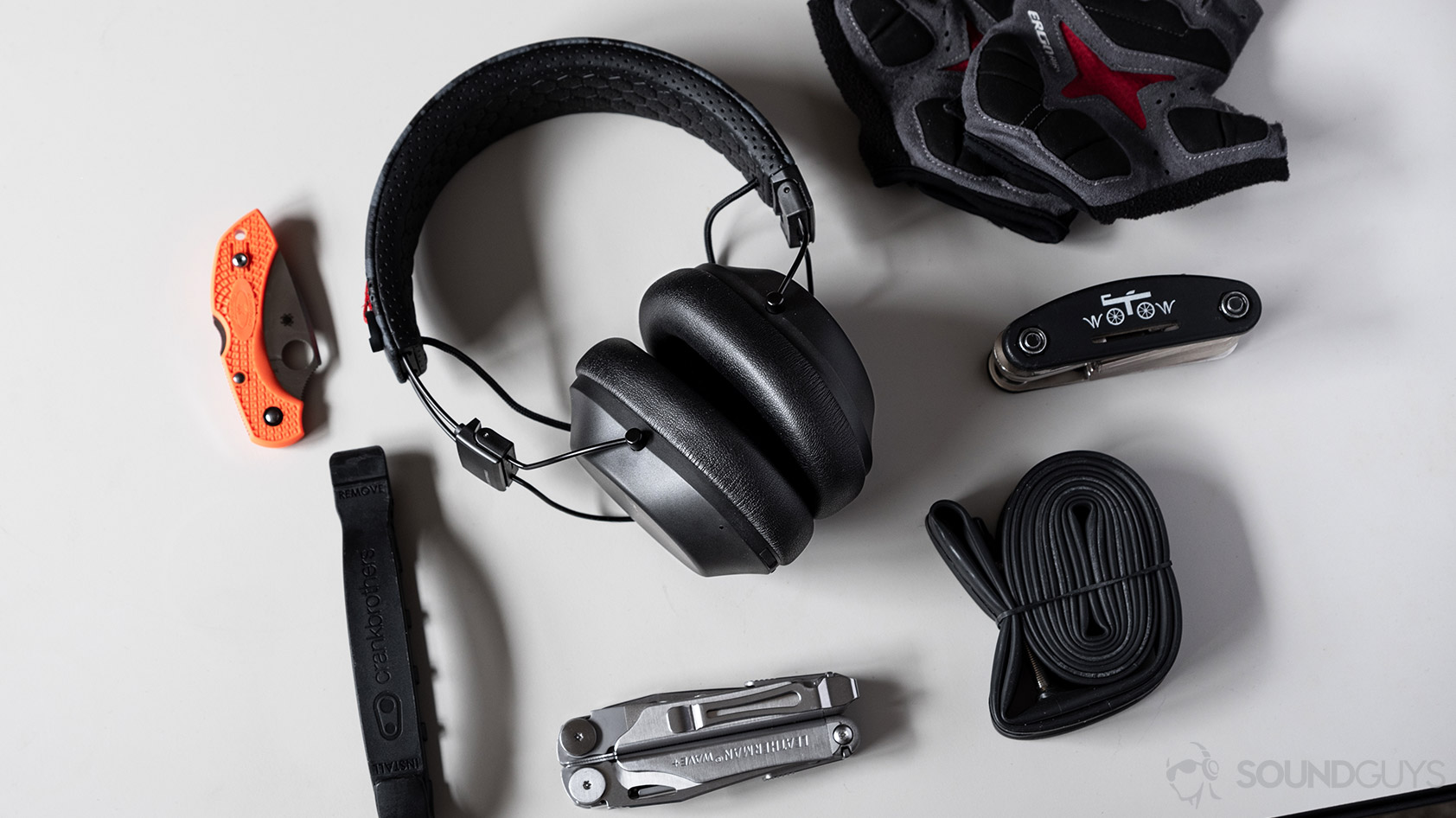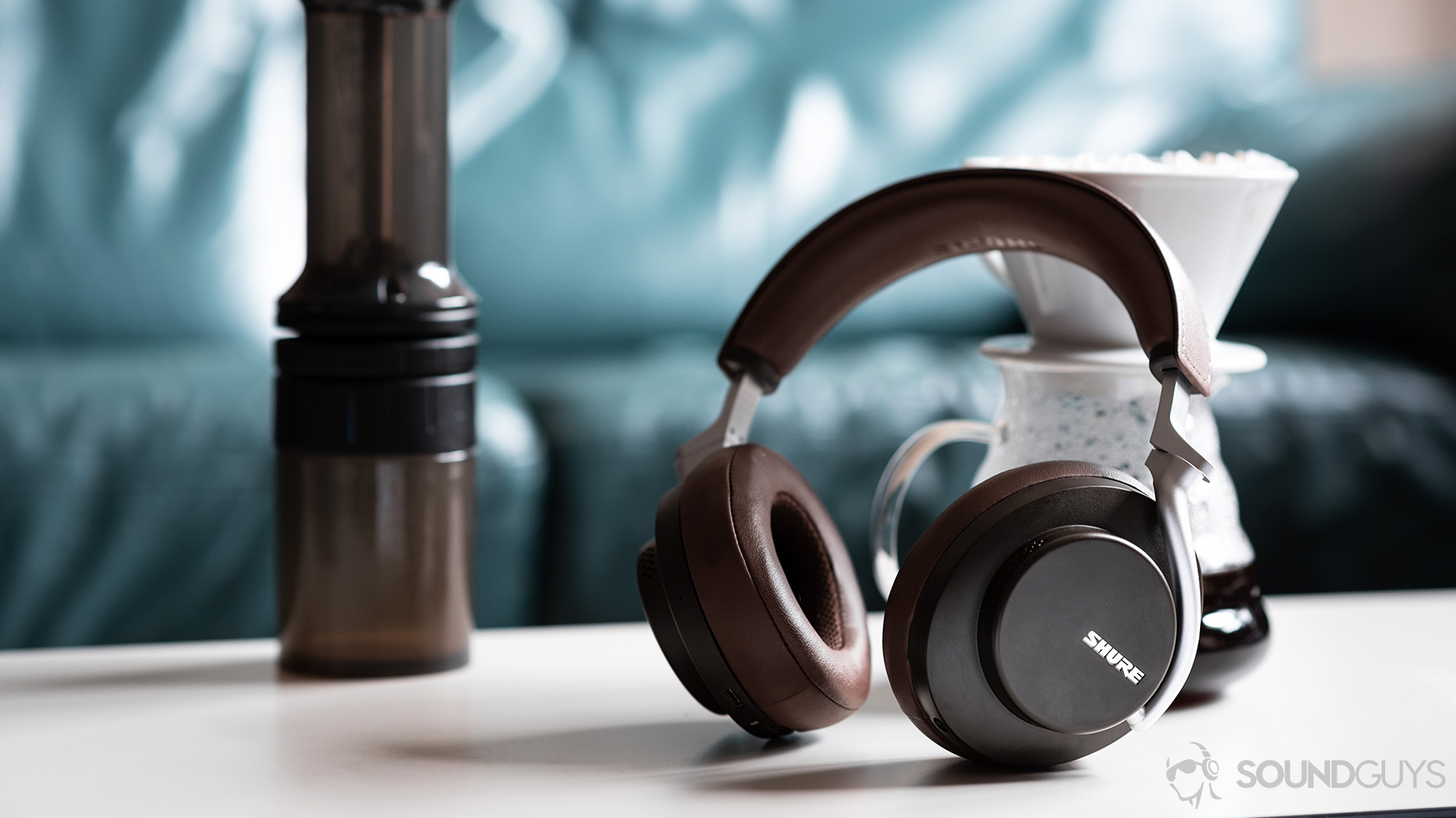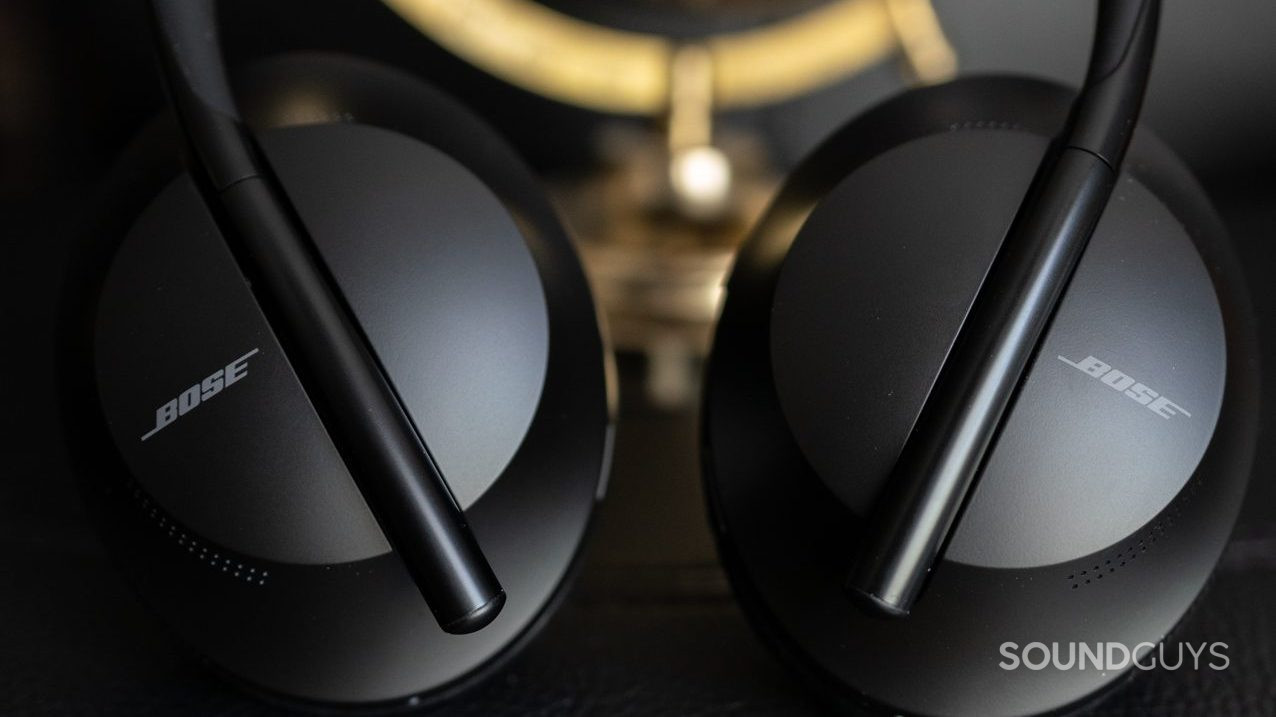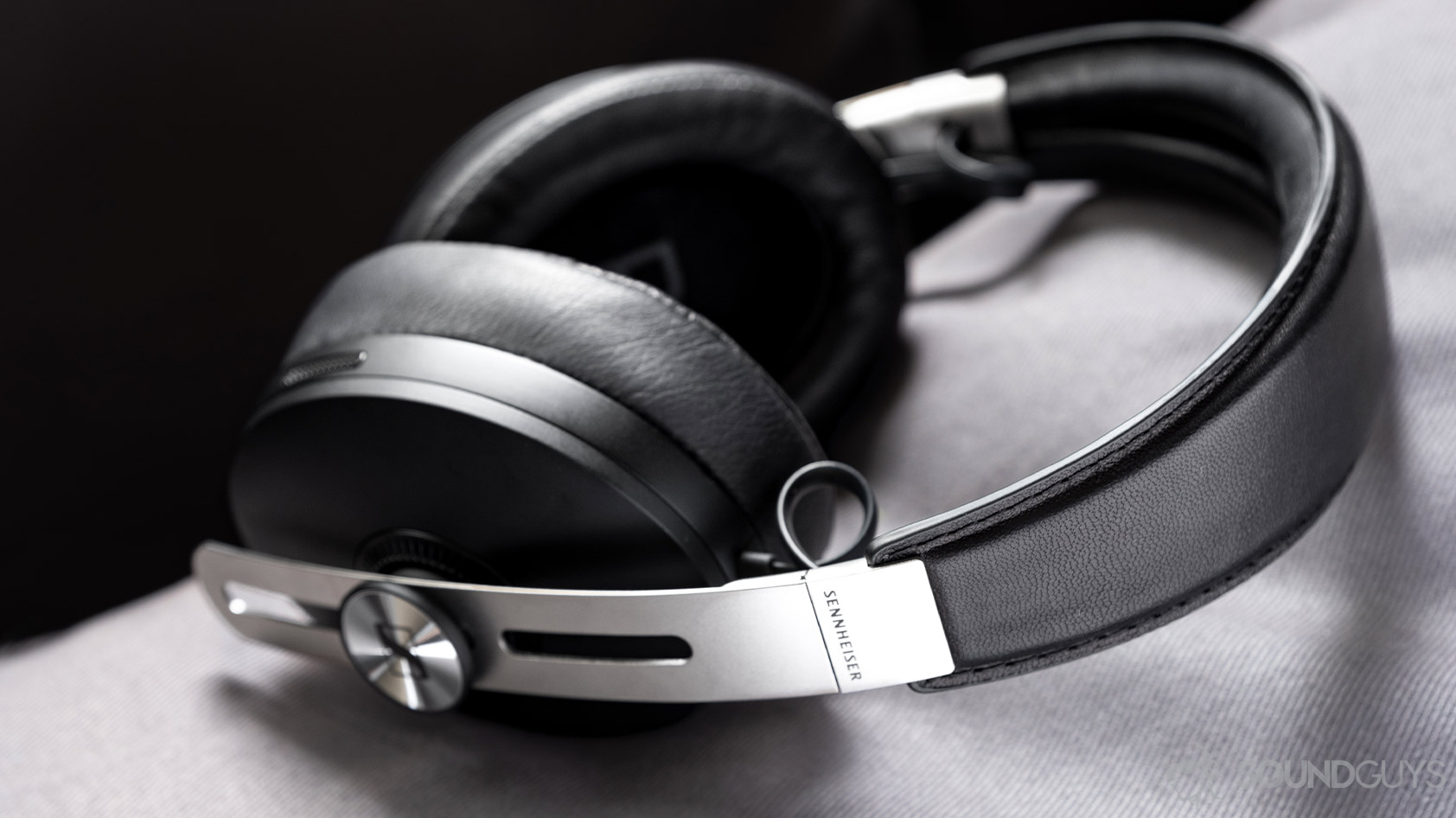All products featured are independently chosen by us. However, SoundGuys may receive a commission on orders placed through its retail links. See our ethics statement.
5 reasons you should buy Bluetooth headphones
July 31, 2023

We here at SoundGuys love all types of headphones, from in-ear buds to giant studio cans, AirPods to wraparounds, on-ears and over-ears and everything in between. But if you’ve never owned a pair of Bluetooth headphones before, you might be wondering if they’re really worth it. We’ve already shared a list of reasons not to buy Bluetooth headphones, but today we’re looking at the reasons why you absolutely should.
Editor’s note: this article was updated on July 31, 2023, to add user FAQ.
1) They’re wireless, duh
Perhaps surprisingly, the main reason for buying wireless headphones is not to support the tireless efforts of the Bluetooth Special Interest Group. No, the number one reason for picking up Bluetooth headphones is of course because they’re wireless. Not that I have anything in particular against cables, per se, but the freedom going wireless offers you is unparalleled.
The freedom going wireless offers you is unparalleled: no more tangled headphone cords, no need to even take your device with you.
No more tangled headphone cords, no need to take your device with you as you walk around the house, no accidentally yanking your headphone cable out or knocking your phone off the table, no wear and tear, no safety worries with the new breed of smartphone with no analog port. The first time you head to the gym with a pair of wireless Jaybirds or Jabras on, I guarantee you’ll become an instant convert. It’s no mystery why so many people like AirPods: they’re pretty friendly little buds.
2) Sound quality and connection stability are much improved

Back in the heady early days of Bluetooth headphones, connections would drop out, pairing was a pain, they were crazy expensive, playback was unreliable and audio quality was the musical version of the old tin can telephone you made as a kid. But times have changed.
These days, pairing is often as simple as tapping an NFC tag or flipping open the lid of your AirPods’ case. Bluetooth 5.0 is here, and promises double the coverage distance, and four-times the throughput. The reliability and stability of wireless connections are as good as they have ever been, and practically everything electronic has Bluetooth audio support (except the Nintendo Switch, ahem!). Even true wireless connection stability is improving: more companies are forcing an independent connection from a smartphone to each earbud to lessen connection drops and delays.
What’s more, we see a lot of people describe Bluetooth audio as awful, and this is rather harsh. It’s true that it isn’t as high-quality as wired audio as there’s still data loss, but Bluetooth quality is good enough for most general consumers. High-quality Bluetooth codecs have come a long way since their inception, and even the standard SBC codec has made headway. We’re at a wireless audio inflection point what with the advent of Bluetooth LE Audio and the LC3 codec. Again, this isn’t to say wired audio has lost is place; quite the contrary, its impassioned followers are clutching their cables tighter than ever, but saying Bluetooth streaming is “awful” is just hyperbole in 2021.
The point I’m trying to make here is that if wired headphones are still better than their wireless counterparts, the quality gap between them is growing smaller every day.
3) Battery life is great (for headphones, earbuds are another story)

While I know charging yet another battery is a pain, all portable products of convenience come at a cost: want a wireless desktop? Get ready to charge your mouse and keyboard. Smartphone, laptop, Nike AirMags: everything fun and convenient needs a battery. The same is true for audio.
Fortunately though, the battery life of Bluetooth headphones can easily approach—if not exceed—the 20-hour mark, depending on the pair you buy. Wireless neckbuds supply 10 hours of playtime on a single charge; while true wireless earbuds are a bit more of a gamble: those battery cells are tiny, and deplete rapidly since they’re always cycling through charges.
Regardless, most all headphones provide more than enough playback for an entire day at the office, several trips to the gym or countless laps around the block (on a larger pair like the Sony WH-1000XM5 noise-canceling headphones, you can easily get 20 hours). Considering you already have to charge half the stuff you take with you every day, what difference will plugging one more thing in really make?
With exceptional standby times on some products—I’ve picked up a pair of Plantronics on-ears after six months that still had a full battery—charging your headphones’ battery can be something you only have to do once a week or so. Not a bad price price to pay for being wireless all the time. Plus, plenty of larger wireless headphones allow you to simply connect them with a cable if the battery dies: win, win.
4) Keep your phone unlocked with Trusted Devices

If you don’t know what Trusted Devices are already, they are basically gadgets that you own or “trust” that you can use to keep your smartphone unlocked. The only requirement for establishing a trusted Smart Lock pairing is the presence of a battery and Bluetooth. You can use a fitness band or smartwatch to keep your phone unlocked while they’re in close proximity, and the same thing works with your wireless headphones.
Trusted Devices let you keep your phone unlocked when a Bluetooth-powered gadget is in close proximity.
Wired headphones don’t support this feature because they’re not able to broadcast anything to your phone. But if you’re not into fitness straps or other wearables, you can still enjoy the benefits of Trusted Devices by granting your Bluetooth headphones the power to keep your phone unlocked. And if you’re the type to keep your headphones either on your ears or around your neck at all times like I am, Trusted Devices can save you minutes of frustration every single day.
5) Freedom of choice

One of the least-noted benefits of Bluetooth headphones is that they’re non-exclusive, unlike wired headphones. Smartphones have all but ditched the headphone jack entirely, and using a wired connection typically means getting a dongle for your phone on top of whatever you spent on your headphones.
Bluetooth headphones are non-exclusive, so there's no reason not to have both wired and wireless headphones for different situations.
But Bluetooth headphones work on basically everything, so long as you have a dongle or phone with a headphone jack. If you feel like higher-quality audio for a bit, just plug your regular headphones in. Want to go play basketball but don’t want wires getting in the way of your three-point jumper? Switch to Bluetooth. There’s absolutely no reason not to have both wired and wireless headphones and use one or the other depending on the situation. Unless you’ve actually got a pair of Bluetooth headphones, you’re stuck without options.
So those are five very simple reasons to give Bluetooth headphones a shot. Considering some of the great wireless headphone deals going around, you can pick up a decent pair for next to nothing and see for yourself how great they are. The best part of all though is that buying Bluetooth headphones doesn’t mean you have to throw away your old cabled ‘phones. Use them when it’s convenient, and switch to cabled when it’s not. The question isn’t really why you should buy wireless headphones, but why wouldn’t you?
Frequently asked questions
If your television set has onboard Bluetooth, there is a strong likelihood that it will work with your headphones. Be sure to check out the device’s settings to see if this is possible.
If your phone doesn’t have a headphone jack, you might be out of options. If you’re looking to save money, buying new headphones is a bit far down the list, though.